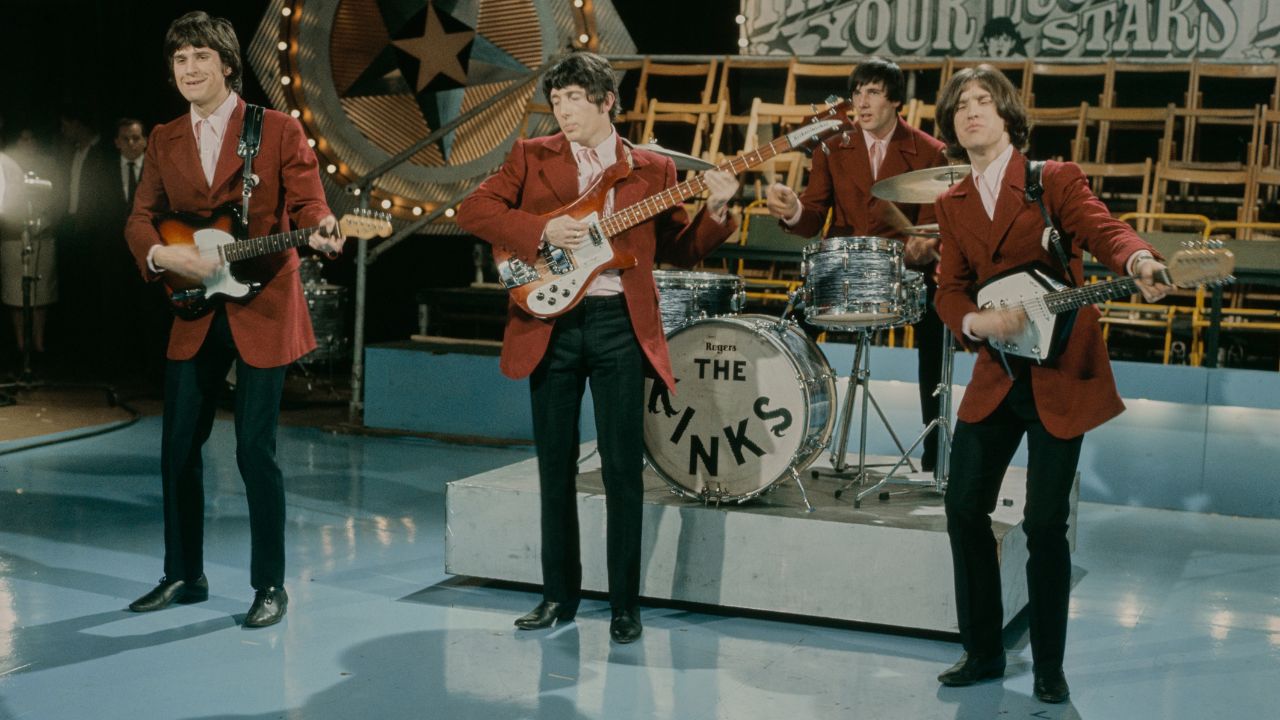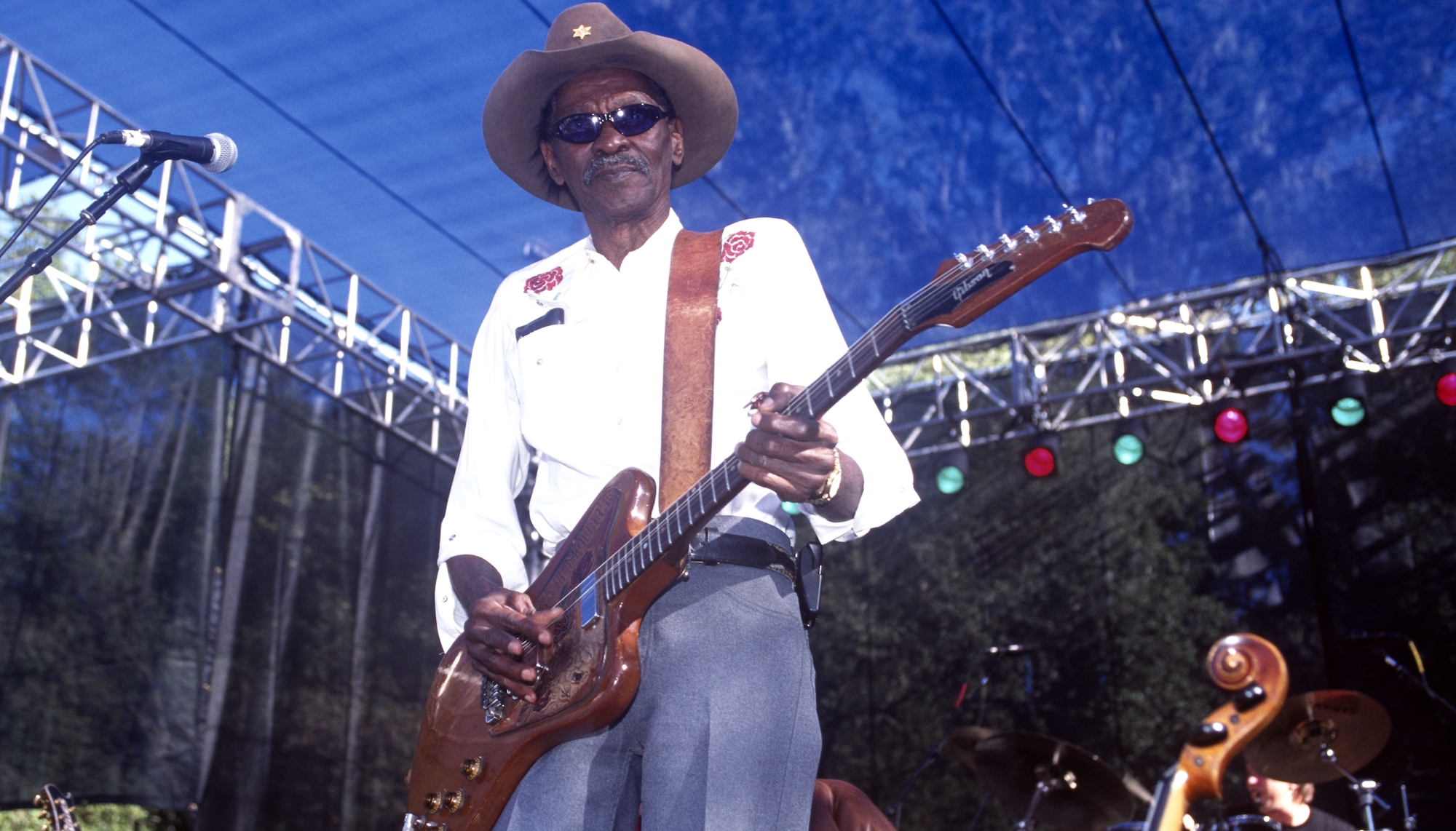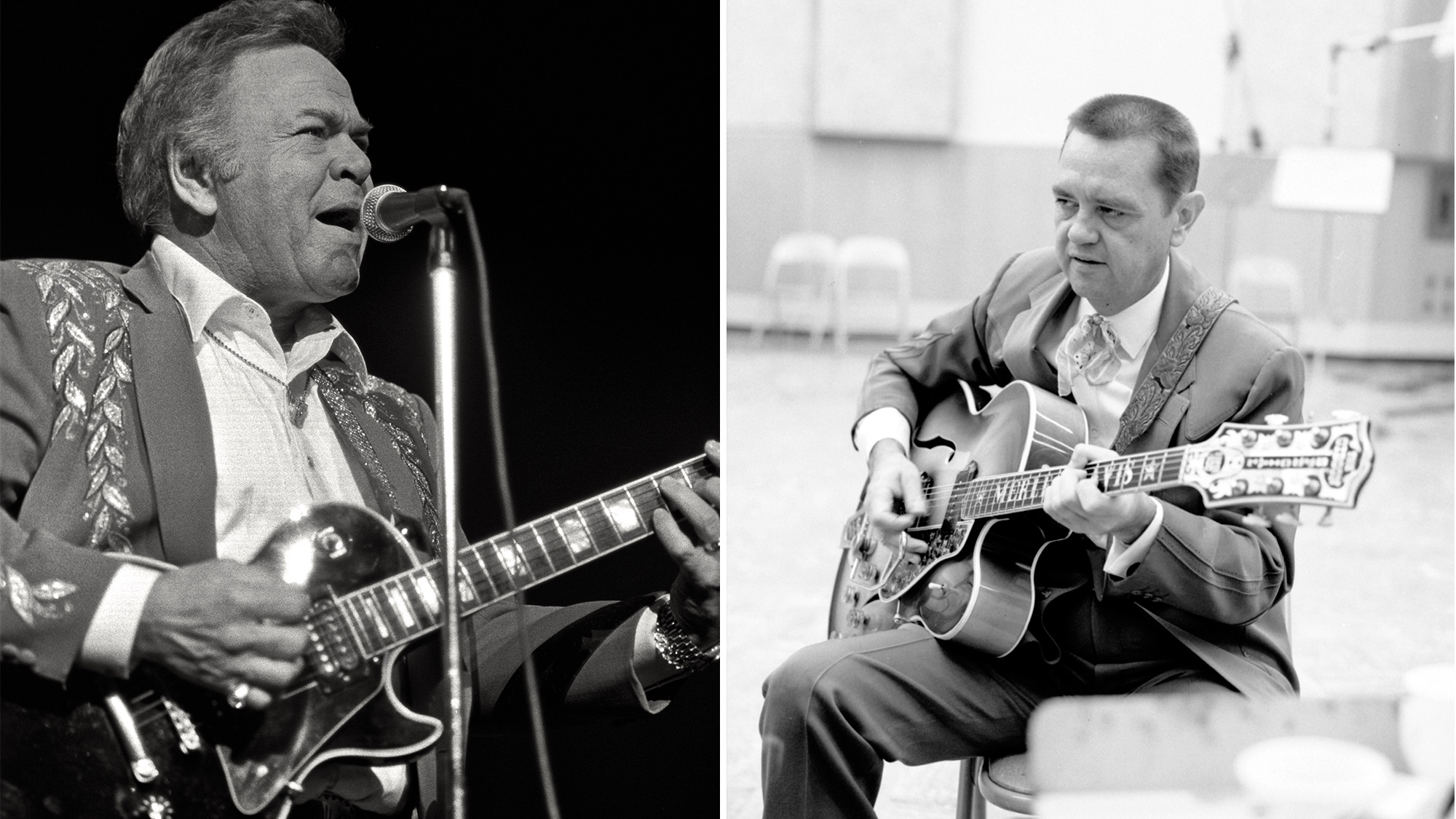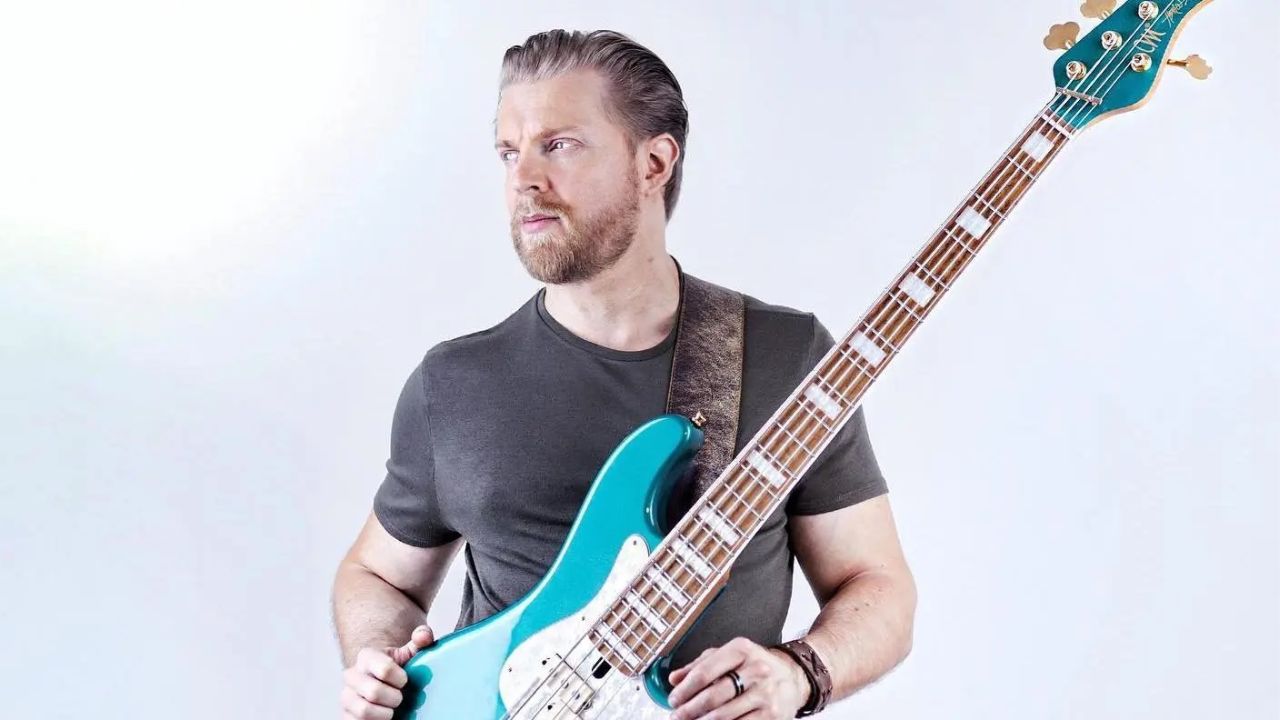Interview: Sal Costa on Getting in Gear with My Darkest Days
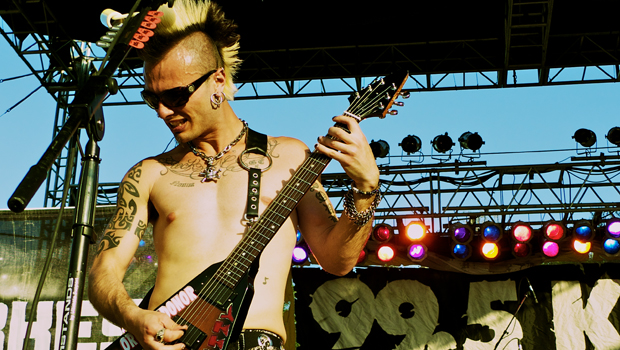
Sal Costa began his musical education on the piano when he was 4 years old, moving on to guitar when he was 8. He was influenced by the usual guitar heroes — Slash, John Frusciante, Tom Morello, Randy Rhoads, Jimmy Page and Joe Perry.
“Those guys made me want to learn guitar,” he says. “They all had a style, and as a player, that's what you want to accomplish — having a style that is identifiable, and knowing your way around the instrument as fluently as you possibly can. Being able to play what you hear before you play it.”
A rock 'n' roller at heart, Costa is also a classically trained guitarist who studied flamenco as a college student. As a full-time musician, he earned his studio chops while playing lead guitar in several struggling rock bands, where he was often the frontman as well.
His luck changed when he joined vocalist/songwriter/guitarist Matt Walst, bassist/vocalist Brendan McMillan, keyboardist Reid Henry and drummer/vocalist Doug Oliver in My Darkest Days. Signed to Mountain View Records, an imprint owned by Chad Kroeger and Joey Moi, who produced the band’s self-titled debut, Toronto-based MDD shot to the top of the charts with their first single, “Porn Star Dancing,” a musically infectious hit featuring Zakk Wylde and Ludacris.
Launched by a very sexy and slightly raunchy video, the track could easily have turned MDD into a one-hit wonder. Instead, thanks to a solid album and 14 months of grueling roadwork, My Darkest Days is a success story — one of the few in this suffering industry.
MDD is close to winding down their tour and taking a much-needed break before honing in on their next album. En route to yet another venue, Costa offered some perspective about how gigging night after night has and hasn’t changed his sound.
You and Matt are extremely different players. He’s self-taught and vocal-focused, you’re classically trained and play lead. How has being on the road tightened you as a guitar team?
Get The Pick Newsletter
All the latest guitar news, interviews, lessons, reviews, deals and more, direct to your inbox!
We stick to what we’re good at and we play off of our strengths. When everybody in a band plays off of their strengths and doesn’t focus on or micromanage anyone else’s weaknesses, you come up with great results. Matt is a completely different player than I am, and we both keep getting better at what we do. As a team, we grow. That’s the key: making sure you’re constantly working toward the common goal.
Has your tone changed as a result of touring and playing night after night?
Yes and no. I have an ear for what I want my stuff to sound like. Playing in a different room changes your tone every night. My tech sets up my stuff during soundcheck, it’s the same EQ as the night before, but it sounds completely different. I have a sound that I hear in my head every night, and depending on the room, I will re-EQ my amp and change it to make sure it sounds like that. I find it’s not so much about gear anymore.
I’ve had a few amps blow on this tour, and literally we’ve been playing so much that I haven’t had time to get them repaired. I’ve had backup equipment pulled out and I’ve made it sound exactly the same as the previous amp that’s a completely different amp, just by knowing what I want it to sound like. I can EQ it to what I hear in my head. It’s a result of playing and playing.
I used to have this tech named Lou, who works in a music shop in Ontario called Chaos Music. He’s taken me under his wing since I was a kid. He would explain EQ to me, he would explain all this stuff to me, and I never understood it until I hit the road. He would explain how rooms change the sound and rooms change this, how depending on where you play, you’re going to want to add a little more of this and a little more of that. I didn’t understand what he was saying. But when you hit the road and you’ve been playing for months and you hear that same sound every day, you look at it and it’s dialed in every day. I have it marked where everything should sit, and you play a room and it doesn’t sound the same.
The EQ is right, but the acoustics of a room will completely change your guitar tone. You have to go back and listen to it, and there’s not enough bottom end in this room, I don’t hear that oomph, so I go in and add a little bit more bass, or I go into a room and all I hear is a lot of bass coming out of my amp and no high end, so I’ve got to kill the bass a little bit and add more high end. Then I started to understand all these lessons that he would teach me that at the time didn’t mean anything to me but now mean the world to me.
Has your gear changed since you’ve been on the road?
My system has been tried and true. My WOBO [patch bay and foot controller] blew up on the way to the U.K. and I got it fixed. I’m still using all the same gear. I’ve got a lot more guitars now, but amps, pedals — it’s pretty much identical from the last time we talked. I read interviews with guitar players and they talk about how they switch their amps, how they switch their gear, how their gear changes on a monthly basis and all this stuff that they have. Then I read an interview with Tom Morello, who’s known for having the craziest guitar sounds and effects, and he’s stuck with one amp and one tiny pedalboard for his entire career and never changed. It shows you that if you have something good, keep it; there’s no point in changing it. If it’s broken and you really like it, just fix it.
When we last spoke, you said, “I used to practice for hours a day at home and now it’s half an hour before the gigs, so it’s not as much as I would like. Being a musician at this stage, I work on my performance chops and I’m able to rock out and learn solos and do fun stuff on different levels. The other part of playing technically hasn’t suffered, but it hasn’t improved as much as I would like. I would say that overall, as a musician, I am getting better.” Nine months later, have you noticed some technical improvements?
Yes. The stuff you had to concentrate on playing, you’re doing it so much that it’s like riding a bike; it’s not as foreign anymore. It becomes fluid. Still, on the road it’s a lot different. I get distracted very easily, and even when I’m at home and I’m with my girl, I have to go into a separate room, shut the door and focus on what I’m doing. On the road it’s hard to practice a lot because of the constant distractions.
If we’re in an arena, I try to find a changing room that’s unoccupied and go in there and practice for a while. I’m looking forward to getting off the road to get away from the whole performance side of things and focus on something new. I want to study a style of music I’ve never studied, get really good at it before we hit the road again, and be able to incorporate what I’ve learned into the next tour.
What does your practice consist of?
I practice a lot of scales, and I don’t want to forget any of the theoretical stuff, so I take scales and the theory that I know and I make exercises out of them. I’ll take a mode of the major scale, say Aeolian or Dorian or Phrygian or Lydian, and I’ll take one of those scales and make an exercise out of playing it. I’ll do that scale with alternate picking, then with hammer-ons, pull-offs, picking downstrokes or upstrokes, or I’ll figure out a way to sweep-pick that scale. I take basic theory and make my own exercises out of them. That’s pretty much it, and then just jamming to backing tracks. Sometimes I’ll go to YouTube and get really cheesy backing tracks and practice playing to them.
Now that “Porn Star Dancing” is no longer the defining song for My Darkest Days, are you getting more guitar cred?
Yes, definitely. When we started touring, our sets were 25 to 30 minutes long. We had just enough time to play a few songs, but not enough to show the full spectrum of our band. Now we have a guitar solo, a drum solo, and it lets people know that there’s a completely different dimension to the band. It takes a while for people to take your craft seriously, especially being a new band coming out of the gate and having heavy hitters like we did on our record. It takes a while for people to realize whether or not the band has its own set of skills and talents. So that’s what’s been cool about headlining our own gigs and being direct support — we have a lot more time to show a completely different side.
How much of a guitar solo do you take?
You have to always take into account that maybe 3 percent of the people in the crowd are music nerds like myself and the other 97 percent just want to hear the song. So you have to make what you’re doing in that solo time part of the show, but still have enough chops and licks in there that you’re going to get the attention of the musos. Instead of just standing there and playing, you make it into a show.
You run around and try to do the same things you would have done to impress all the music guys, but you add the show element to it. We’ve had people come up and tell us that it’s their favorite part of the show and they don’t know anything about music aside from songs. I used to watch Guns N’ Roses DVDs when I was a kid, or VHS in those days, and Slash was so cool. Whatever he did on his own, they made it into part of the show. He wasn’t just standing there boring people.
How is all of this preparing you to go back into the studio? What knowledge will you take with you, and will you use Amp Farm again? [Note: My Darkest Days was recorded using Amp Farm.]
Probably. I’m doing a lot of recording at home now. I set up a little studio at my place and I found that I can get way, way better guitar sounds with all this digital gear. I was talking to Barry [Stock] from Three Days Grace about this. He’s an insanely good guitar player and he’s gotten a lot into recording and engineering as well. We were talking about analog amps versus digital amps and how he used to use only tube amps and all that kind of stuff. Now he’s using a lot of digital. It’s come such a long way that you can do anything you want with it. It takes a lot more knowledge of recording to accomplish a good guitar sound, because something that sounds great live usually doesn’t sound good recorded.
That’s my downfall when I’m recording — I’ll get my great guitar sound live that I love, I’m so excited to set up everything to record it, and it just sounds horrible. Now I have digital amps where whatever I can get it to sound like on the computer is how it will sound recorded. So I can get these digital amps, and like I was talking to you before about how I have the sound in my head, I hear what I want my stuff to sound like and I can make that digital gear sound exactly like my live gear.
It’s just taking a different approach. So instead of recording my live gear and making it sound not like my live gear, I’m taking my live gear sound, registering that sound in my head, and transcribing it to the digital world. It’s been great because I can get demos done in my house so quickly and pass them on to Matt to lay down a vocal. I feel confident about it because it sounds like me. That’s the one thing I always hated about recording myself before all this digital stuff, because I was so against it — I found that it never sounded like me. I had this great sound in my head and I could never accomplish it. With digital, I can get it to sound like what I want.
Sal Costa's Gear Rundown:
Guitars:
C#: Gibson Flying V
C: DBZ Flying V
C: Kramer Flying V
Amps:
Clean: Marshall JCM2000
Dirty: Randall V Max
EFX:
Boss TU-e Tuner
Ibanez WD7 Wah
Keeley Compressor
MXR Zack Wylde Overdrive
Electro-Harmonix Small Clone
Electro-Harmonix Holy Grail
Digitech Digi-Delay
Misc.:
WOBO Patch Bay & Foot Controller
Dunlop DC Power Brick
Furman Power Conditioners
Picks:
Intune .88 Picks
Pickups:
EMG Active 81 & 85 Pickups
Strings:
Ernie Ball Slinky Top Heavy Bottoms
— Alison Richter
Alison Richter interviews artists, producers, engineers and other music industry professionals for print and online publications. Read more of her interviews here.>
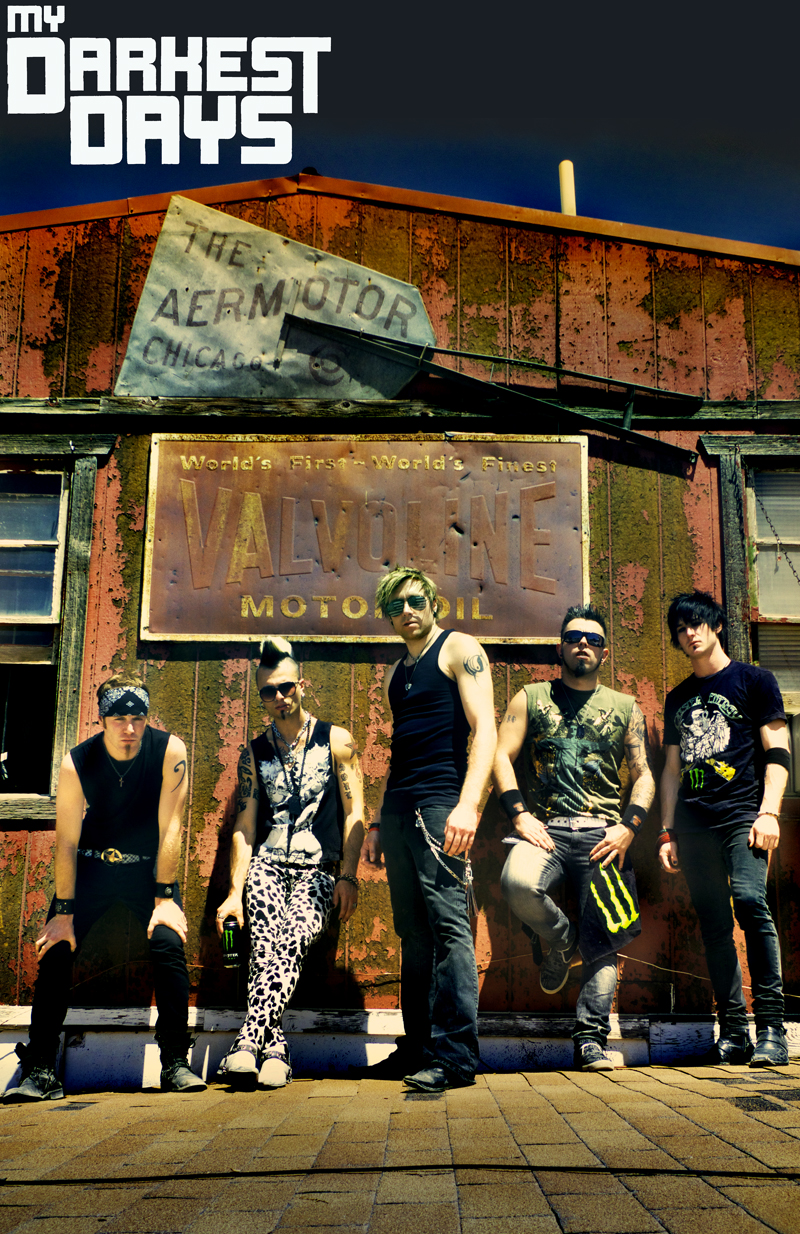
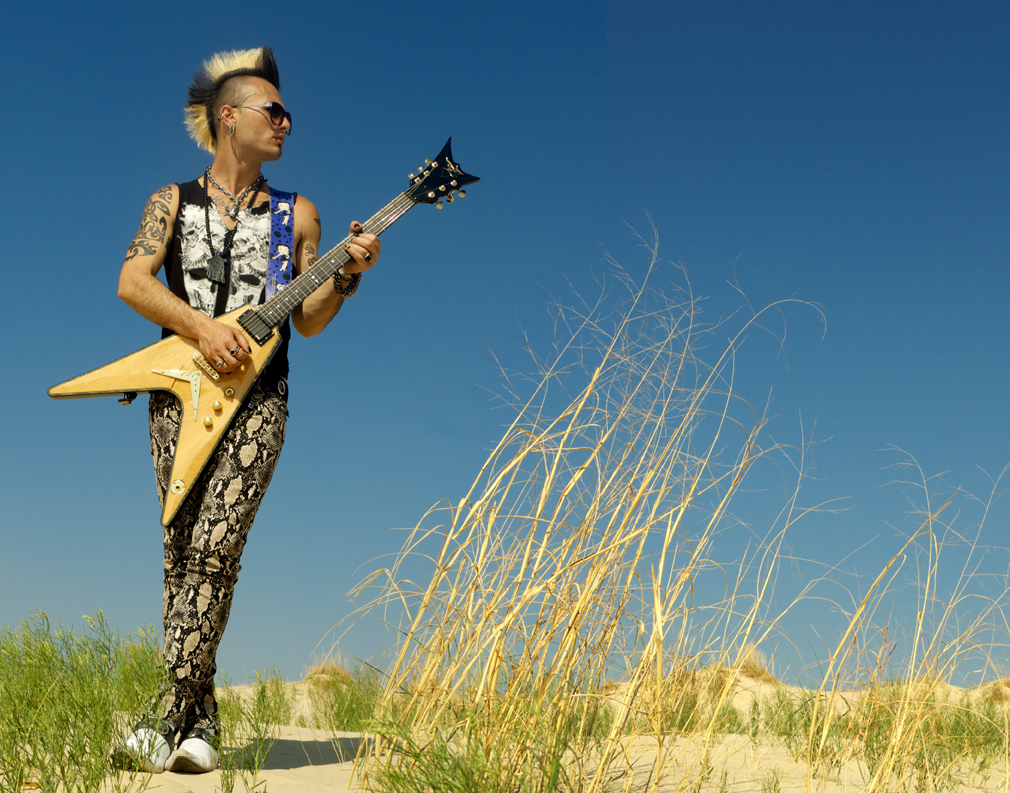
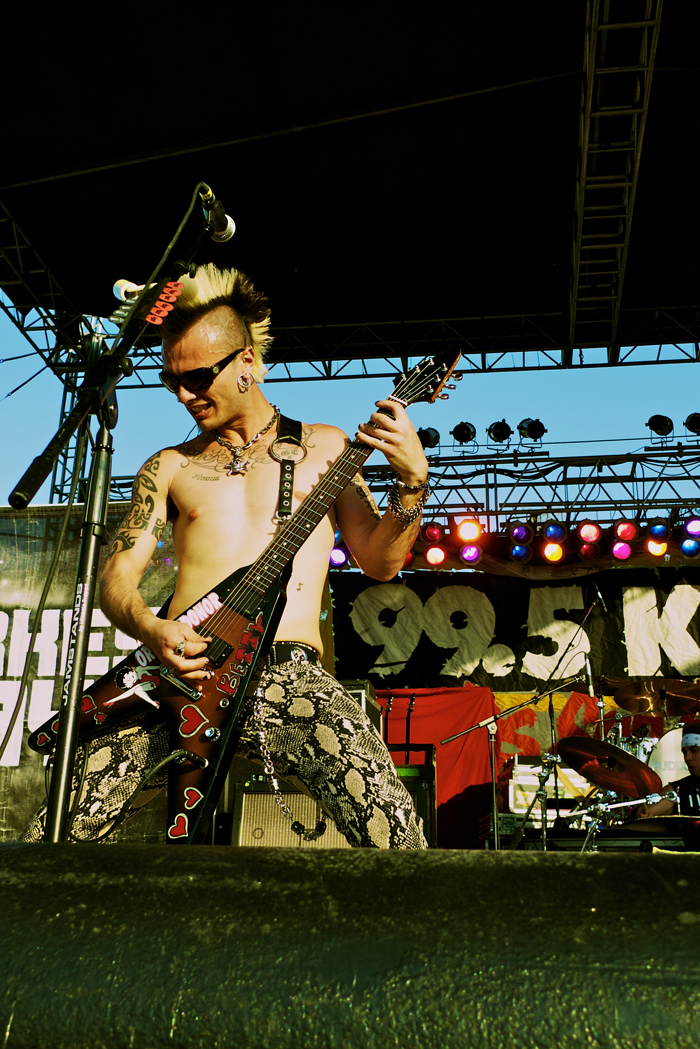
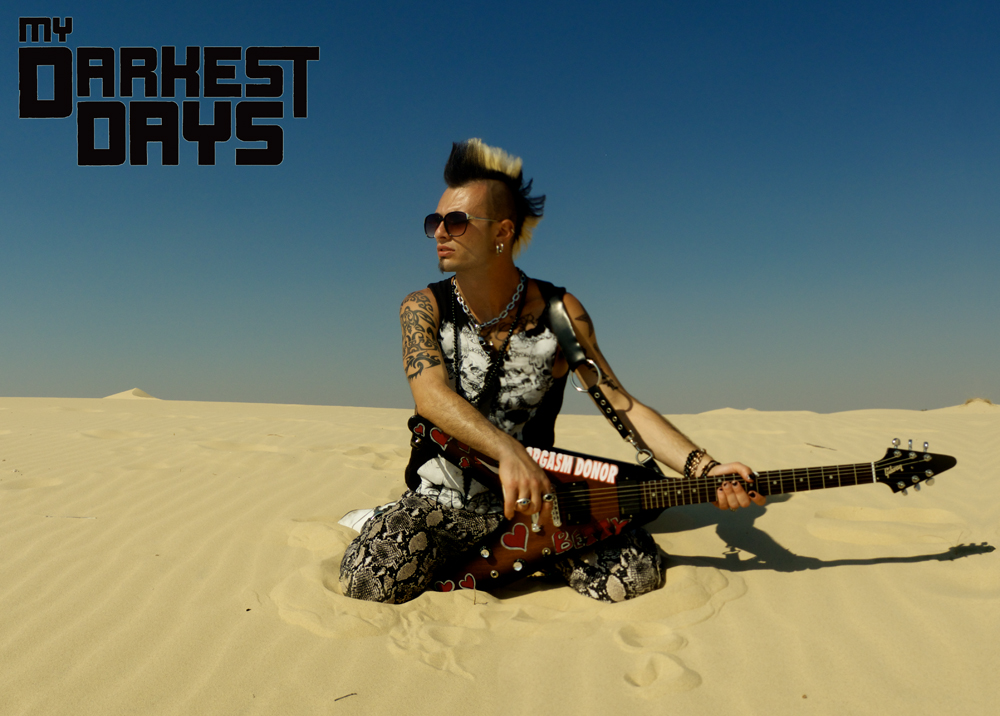
Alison Richter is a seasoned journalist who interviews musicians, producers, engineers, and other industry professionals, and covers mental health issues for GuitarWorld.com. Writing credits include a wide range of publications, including GuitarWorld.com, MusicRadar.com, Bass Player, TNAG Connoisseur, Reverb, Music Industry News, Acoustic, Drummer, Guitar.com, Gearphoria, She Shreds, Guitar Girl, and Collectible Guitar.
“I left without a penny to my name. I was bitter for a while, but I’ve got a great legacy”: Though Pete Quaife gets credit for jumpstarting the Kinks bass chair, John Dalton and Jim Rodford pushed the band forward on many of their classic albums
“Chuck Berry's not a very good guitar player. He's a clown. He runs all over the guitar, just like any one of these old rock players would do, and makes no sense”: Clarence “Gatemouth” Brown pulled no punches when speaking about his fellow guitar heroes
